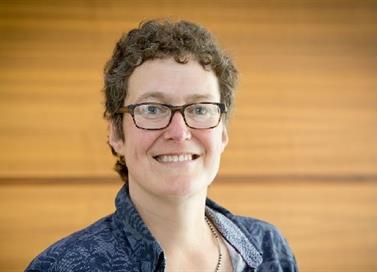The importance of Pride
20 June, 2019
There is a reason why Pride is such a powerful word.
Humans are subject to a range of drives and motivations, one of those is a desire to be respected and valued.
Parents and teachers tell children that they are proud of them, I remember the positive impact of this praise on my younger self.
I can also recall the dilemma of communicating my sexuality to my parents, friends and colleagues.
My family were wonderful and the Pride that I felt when I stood with my partner at my siblings’ weddings has nurtured me in complicated times.
Diversity of gender and sexuality is now recognised.
However this diversity continues to polarise people.
While debate and dialogue can of course be heathy, it should ideally be sensitive and informed.
It feels very obvious to state that when people are negative about key aspects of ones identity then this can damage self-esteem and mental health, and we know that people within the LGBTQ+ community have higher rates of mental health needs.
What is also known by anyone who follows the news is that gender and sexual diversity continues to generate negative and hostile dialogue.
Extreme opinions can travel further than moderate ones and people may become fearful that such negativity is a widely held and this can impact on them accessing care.
A young person told me that when they attended a mental health appointment, they looked for signs that a clinician will be supportive of gender and sexual diversity; a rainbow logo or a diversity leaflet.
This captures the complex dilemma faced by LGBTQ+ people from a young age; I'd like support with my mental health needs, can I be honest about who I am and what is happening for me?
To have your identity seen, acknowledged and accepted by another person is a powerful driver to forming a connection with them.
This is the case within family and friendship relationships but also the therapeutic relationship on which we base mental health care.
Establishing trust is the basis on which we can build hope for the future. Young LGBTQ+ people may be facing stigma at home, at school, in the community, online and in their own minds.
They will be alert to signs and communication that they are welcome or unwelcome.
We know that much human conversation is a nuanced blend of words, gestures and intonation. It is as much about what is not said or asked.
Thinking about pronouns when asking about relationships and identity, making it clear that diversity is welcome and part of the normal range of human expression.
My personal experience has been that psychiatry is a very supportive speciality, I'm Proud to be a psychiatrist in a hospital trust and Royal College that welcomes my diversity.
However, I recognise with sadness that my comfortable existence is not a universal experience.
What I would ask, as we celebrate Pride, is that doctors take a moment to reflect on the lives of LGBTQ+ people and the challenges they may have in accessing healthcare. We are in a unique position to change our patients’ perceptions of healthcare and acceptance.


